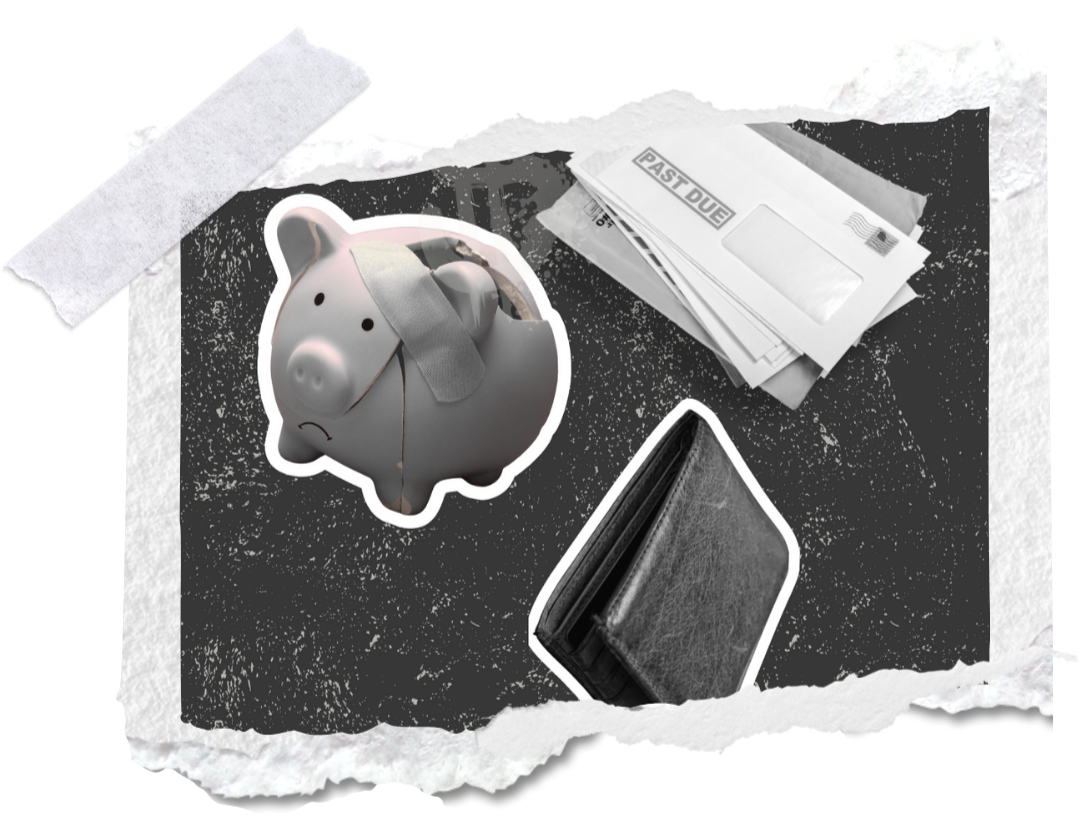Why Young Professionals Feel Broke Even at $80K+
You’re making more than your parents did at your age — so why does it feel like you’re stuck?
We all know the spiel because we feel it collectively:
Groceries cost more.
Spam calls won’t stop.
The stock market is doing the hokey pokey.
AI is threatening to replace your job (see: AI Isn’t Replacing You. Your Employer Is.).
It’s hard to imagine what’s going to happen next.
When “Enough” Never Feels Enough
You’re young and supposedly free, but you’re being rocked by an unforgiving consumer vs. capitalist world. You seriously wonder if quitting your job would make you happier — even when that job leaves you physically sick, sometimes close to an ER visit.
Life looks stable on paper, but you question whether you’re mentally stable. Because deep down, you know:
A 3–5% raise won’t save you.
You’re not going to wake up tomorrow magically excited to log in.
This corporate storm doesn’t end — unless the company collapses.
And that realization f*cking sucks.
My Breaking Point
I’m a math nerd. I’ve spent hours combing through the Bureau of Labor Statistics’ Occupational Outlook Handbook.
At first, I thought, “There’s an upward trajectory in my field. If I play my cards right, I could double my income.” And I did. I built a strong career as a fraud analyst and finally hit 6 figures.
But work never felt like something that would last. Not because I’m lazy, but because I’m naturally creative. I thrive on passion, risk, and the thrill of not knowing what’s next. A 9-5 felt like life on pause.
I’d launched business after business: service-based, product-based, high-contact businesses, and after so many failures, I felt like I was running out of rope.
The Ceiling Hits Hard
The Occupational Outlook Handbook confirmed what I already knew: I was in the top 10% of earners in my industry. Six figures secured. But my job was draining me.
I had money, but I was miserable (reminds me of my favorite song: ‘Sad Girls Love Money’).
That’s when I realized: “Enough” is a trap. Salaries plateau. Prices rise. And no amount of climbing the ladder was going to give me the freedom I dreamed of.
Why Digital Products Changed Everything
Naturally, when you fail, you learn. I learned that most business models out there come with low margins and endless headaches.
Meanwhile, I kept seeing entrepreneurs succeed with something simple — a single eBook, a PDF cheat sheet, a digital resource people trusted and wanted. If the product was validated, they could expand later. If not, they pivoted.
Over the years, I learned that digital products were the best kind of business:
Low overhead. No warehouses, no shipping, no giant startup costs.
Scalable. You can sell one or a thousand without extra labor.
Flexible. Build in hours that fit your energy, not someone else’s clock.
The most important part? You can validate an idea quickly. Launch small. See if it sells. Pivot if it doesn’t.

Build Income You Control
Start your digital business the smart way. Grab the free Digital Asset Starter Kit and learn how to launch without permission.
Get the Starter Kit →The Real Lesson
Launching a business is never “easy.” But digital products give you a way to test your problem-solving skills without breaking the bank or burning yourself out.
They’re a way to reclaim ownership in a world where raises don’t keep up, jobs vanish overnight, and $80K doesn’t stretch like it used to.
The moral of the story: Digital products don’t just create income. They create options. And options are the real wealth.
Free Digital Assets Starter Kit: Your blueprint for building profitable digital brands from scratch.
Get the Kit →
